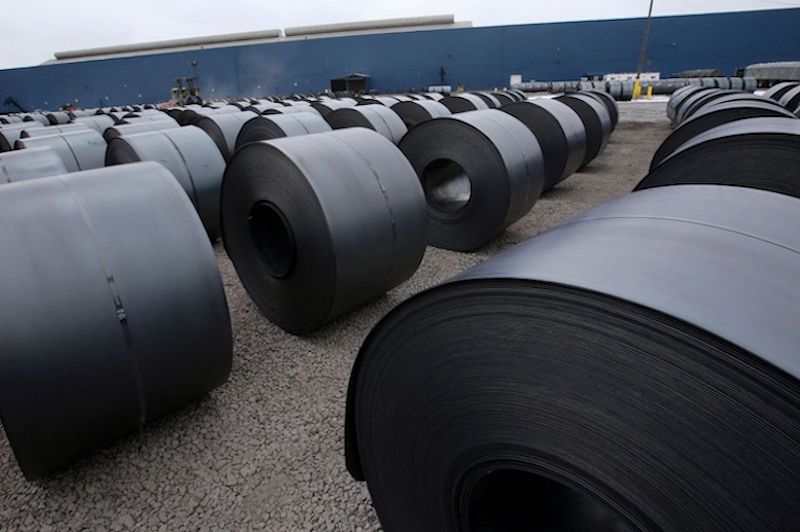The US and UK blamed China for excess global capacity as they opened talks on Wednesday aimed at resolving the dispute over Washington’s tariffs on imported steel and aluminium.
Citing the “serious threat” posed by the oversupply, top trade officials from Washington and London said they are “committed to working towards an expeditious outcome,” according to a joint statement.
The tariffs were imposed on US allies by Donald Trump’s administration and caused friction with trading partners including the UK, which retaliated with punitive duties on US goods.
US Trade Representative Katherine Tai and Commerce Secretary Gina Raimondo met virtually with Britain’s international trade secretary Anne-Marie Trevelyan and pledged to find “effective solutions”.
The officials discussed the impact on their industries stemming from global excess capacity driven largely by China, the statement said.
China-Driven ‘Distortions’
“The distortions that result from this excess capacity pose a serious threat to market-oriented steel and aluminium industries in the United States and the United Kingdom, and to the workers in those industries,” it added.
In June 2018, Trump imposed tariffs of 25% on steel and 10% on aluminium from several countries, saying he was acting on national security grounds, a claim rejected by critics.
Washington reached a quota agreement with the EU to remove the tariffs in October and opened talks with Japan in November.
British business association CBI welcomed news of the talks, calling it “vital” to reach a settlement that takes pressure off industries affected by the dispute, especially amid rising inflation in both countries.
“Trade must be used as a tool for growth; there are no winners in a trade war,” CBI international director Andy Burwell said in a statement.
Beijing ‘Needs To Do More’
Separately, the US said it is working on removing tariffs on Chinese goods imposed by his predecessor, but Beijing will have to do more to meet its trade commitments.
“We’re not there yet,” Joe Biden, the US president, told reporters when asked about the prospect of ending the tariffs.
At a press conference ahead of the first anniversary of his inauguration, Biden said Tai is working on the issue with China but the timing is “uncertain.”
Trump imposed tariffs on Chinese products worth $370 billion in 2018, citing “unfair” trade practices.
But many US companies have criticised the levies, saying they drive up costs, since importers bear the brunt of the impact.
- AFP with additional editing by George Russell
READ MORE:
China Slaps Tariffs on Key US Industrial Compound
Lowering US and China Tariffs Could Ease Inflation, Yellen Says
Beijing to Scrap Tariffs for Poorest Nations – China Daily
























